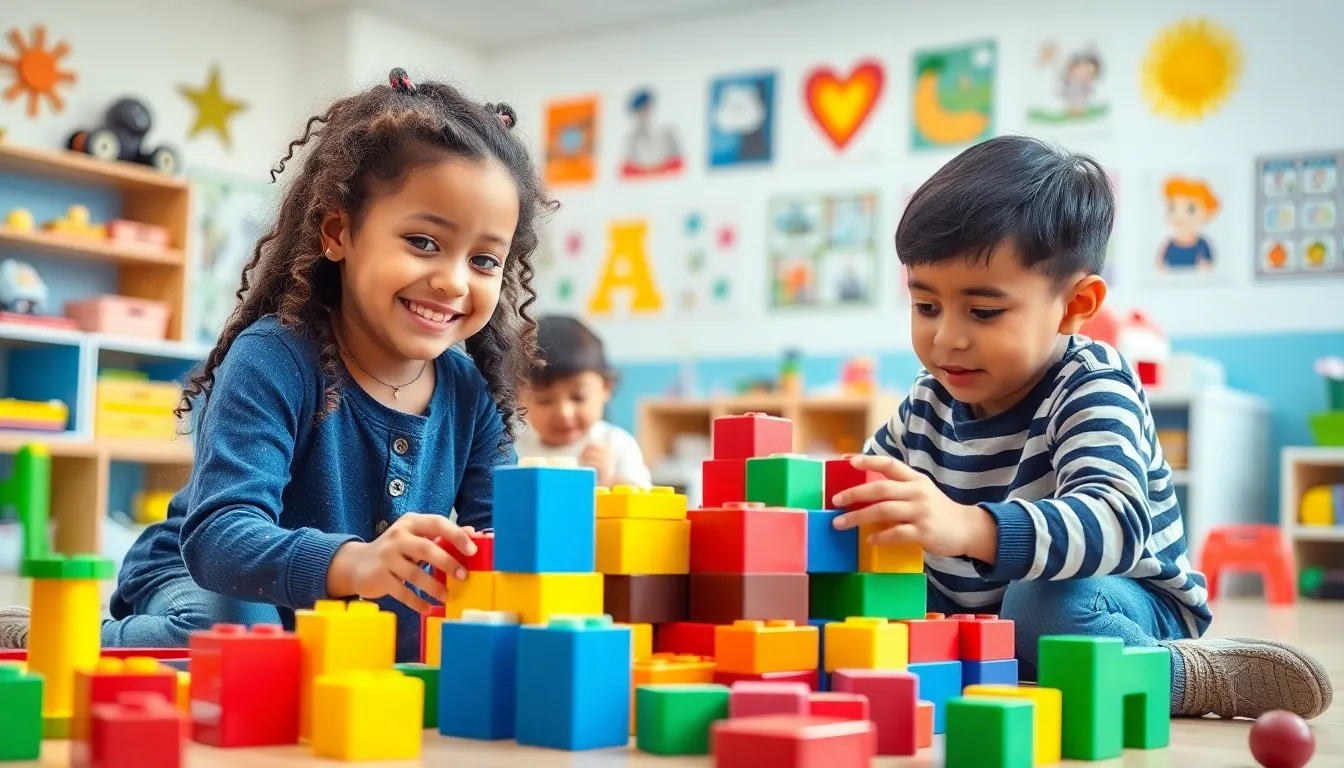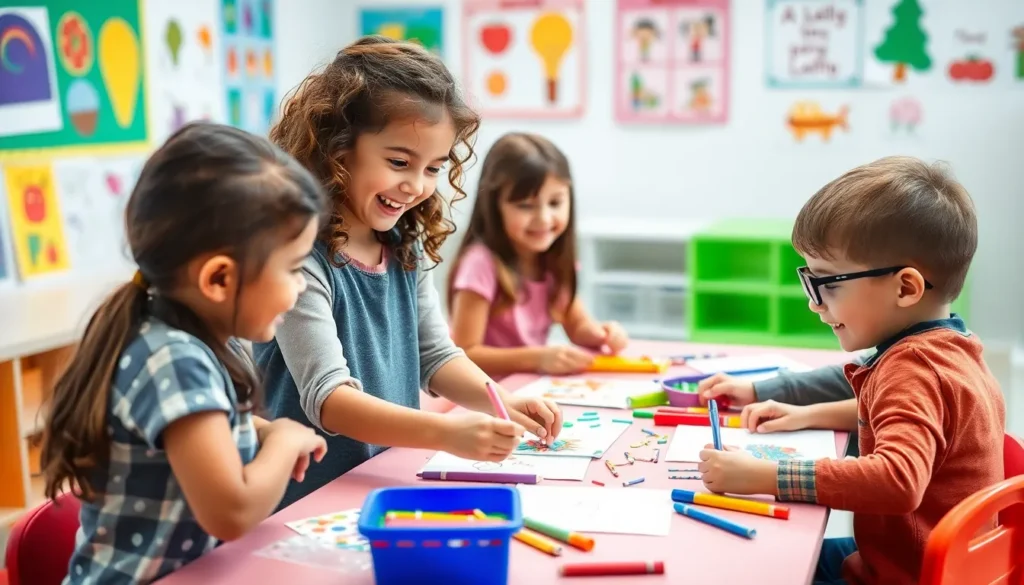Table of Contents
ToggleIn the whimsical world of preschoolers, learning isn’t just a task; it’s an adventure filled with giggles, crayons, and the occasional snack break. As little minds explore their surroundings, the right strategies can turn this exploration into a robust foundation for lifelong learning. But which strategies truly pack a punch in supporting their development?
Overview of Learning Development in Preschoolers
Learning development in preschoolers focuses on the integration of play and exploration. They engage in hands-on activities that stimulate curiosity. Effective strategies encourage interaction and socialization among children. Various approaches emphasize the role of play in cognitive development.
Understanding how preschoolers learn is crucial for implementing effective educational strategies. Research shows that children learn best in environments that foster creativity and critical thinking. Supportive learning environments cultivate a sense of safety and community, enabling children to express themselves freely.
Language development occurs through storytelling and conversation. Engaging with books enhances vocabulary and communication skills. Activities such as singing and rhyming also contribute significantly to language acquisition.
Social skills flourish during group activities. Children learn to share, take turns, and resolve conflicts with peers. Collaborative problem-solving exercises reinforce teamwork and help develop empathy.
Physical development plays a vital role as well. Activities that include running, jumping, and climbing improve motor skills and coordination. Fine motor skills benefit from tasks like drawing and crafting, allowing for precise hand-eye coordination.
Incorporating multi-sensory experiences enriches learning. Experiences that involve touch, sight, and sound deepen understanding. This holistic approach ensures that all areas of a child’s development receive attention, creating a well-rounded learning experience.
By focusing on these strategies, educators provide preschoolers with the tools necessary for lifelong learning. Prioritizing play-based and interactive methods creates an engaging atmosphere for young learners. These foundational elements set the stage for future academic success.
Strategies for Learning Development

Effective strategies enhance preschool learning. Each method contributes uniquely to child growth.
Play-Based Learning
Play-based learning engages preschoolers actively. Children explore their environment through games, fostering creativity. Effective play experiences encourage social interaction, helping kids develop communication skills. Activities like role-playing and building with blocks stimulate critical thinking. Research highlights play as essential for cognitive development, allowing children to learn through exploration. Preschools that implement this strategy create vibrant learning spaces, making education enjoyable.
Inquiry-Based Learning
Inquiry-based learning promotes curiosity among preschoolers. When kids ask questions, they engage deeply with subjects. Teachers guide children in seeking answers, enhancing problem-solving skills. Effective inquiry might include hands-on experiments or nature explorations, allowing children to discover concepts firsthand. This approach nurtures a sense of wonder and encourages collaboration among peers. Supporting inquiry in preschool equips children with lifelong learning strategies.
Structured Teaching
Structured teaching provides clear frameworks for learning. Educators use specific routines and schedules to create predictable environments. Consistent structure helps preschoolers feel secure, enhancing their ability to focus. Teachers introduce concepts through guided activities and direct instruction, promoting foundational skills. This strategy supports both individual and group learning, essential for developing social skills. Effective structured teaching leads to improved academic readiness, preparing children for future success.
Evaluating Effectiveness of Strategies
Evaluating the effectiveness of strategies for preschoolers’ learning development requires examining research and real-world applications. Each approach offers unique benefits that contribute to child growth.
Research Findings
Research highlights significant differences in preschoolers’ engagement levels when using play-based and inquiry-based learning. Studies show that children exposed to play-based activities display increased creativity and improved social skills compared to traditional methods. Inquiry-based learning fosters critical thinking, allowing children to explore topics by asking questions. This approach promotes active problem-solving skills that are essential for later academic success. Furthermore, structured teaching enhances feelings of security in preschoolers, which positively impacts their focus and retention of information. These findings underscore the need for diverse and interactive learning environments for holistic child development.
Case Studies
Case studies illustrate the real-world application of these strategies in preschool settings. One study observed a preschool incorporating play-based learning, noting marked improvement in children’s social interactions and cooperative skills. Another case showcased an inquiry-based curriculum, where children engaged deeply with science topics by conducting hands-on experiments and discussing findings, leading to heightened interest in learning. A third case demonstrated the effectiveness of structured teaching by tracking children’s progress in reading readiness; classrooms that employed clear routines showed higher literacy rates. These examples emphasize the viability of diverse strategies in promoting preschoolers’ learning and development.
Effective strategies for learning development in preschoolers play a crucial role in shaping their future. By integrating play-based, inquiry-based, and structured teaching methods, educators can create engaging environments that foster curiosity and creativity. These approaches not only enhance academic readiness but also support social and emotional growth.
As preschoolers explore their world through hands-on activities and collaborative play, they develop essential skills that lay the foundation for lifelong learning. Emphasizing a holistic approach ensures that children thrive in all aspects of development, preparing them for the challenges ahead. Prioritizing these strategies will lead to enriched learning experiences and better outcomes for young learners.




